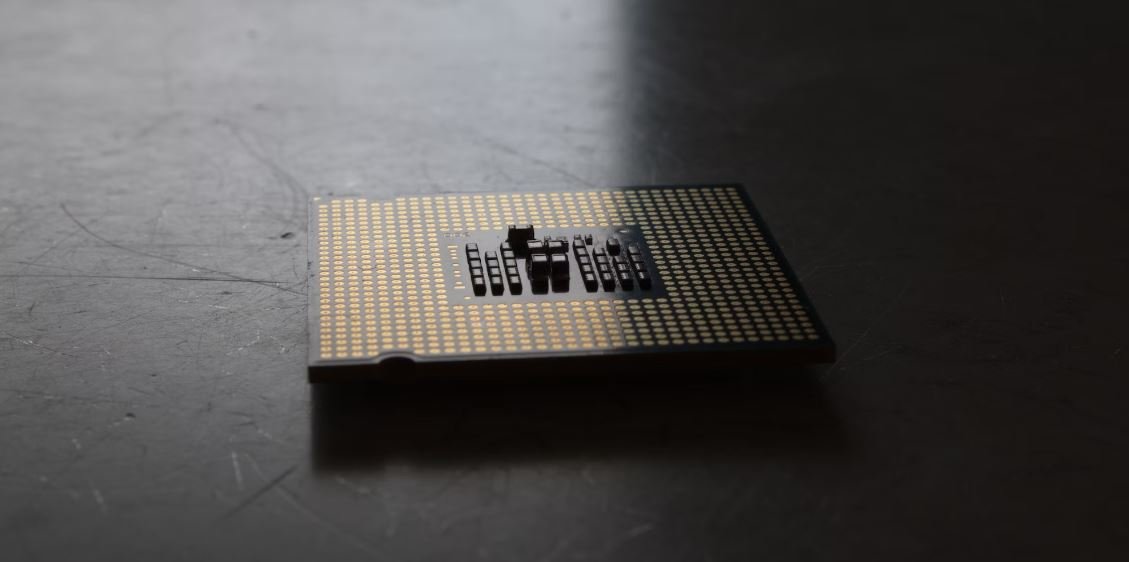AI in Film and TV
Introduction
Artificial Intelligence (AI) has become an increasingly prominent part of the film and TV industry. From enhancing visual effects to assisting in scriptwriting, AI has revolutionized the way content is created and consumed. In this article, we will explore the various applications of AI in film and TV, discuss its impact on the industry, and provide insights into its future potential.
Key Takeaways
- AI is transforming the film and TV industry through applications such as visual effects, script analysis, and audience analytics.
- AI-powered software and algorithms are improving efficiency and accuracy, reducing production costs and time.
- The integration of AI in film and TV raises ethical concerns about job displacement and potential bias in content creation and recommendation systems.
- The future of AI in entertainment is likely to involve advanced technologies like machine learning and natural language processing.
The Role of AI in Film and TV
AI technology contributes to the creative and technical aspects of film and TV production. **It enables filmmakers and content creators to realize their vision with greater precision and efficiency**, enhancing the overall storytelling experience. *For instance, AI-powered visual effects software can generate realistic and breathtaking scenes that would be challenging or impossible to create manually.*
AI algorithms also play a significant role in script analysis. By analyzing scripts, AI can identify patterns, predict audience reception, and provide recommendations for script improvement. *This helps filmmakers and writers create engaging narratives that resonate with viewers.*
Applications of AI in Entertainment
AI technology is applied across various stages of the film and TV production process. Let’s take a closer look at some of its key applications:
| Application | Description |
|---|---|
| Visual Effects | AI enables the creation of realistic visual effects, enhancing the overall visual quality of films and TV shows. |
| Script Analysis | AI algorithms analyze scripts, providing insights and recommendations for improving storytelling and audience engagement. |
| Content Recommendation | AI-powered recommendation systems suggest personalized content to viewers based on their preferences and watching patterns. |
These applications demonstrate how AI is transforming the industry by automating certain tasks, improving efficiency, and delivering personalized experiences to audiences.
The Impact of AI in the Industry
AI has had a profound impact on the film and TV industry. Here are some of its notable effects:
- Improved Efficiency: AI-powered tools streamline production processes, reducing time and costs associated with tasks such as video editing and visual effects creation.
- Enhanced Creativity: AI algorithms aid in generating new ideas, providing insights into potential audience preferences, and expanding creative possibilities.
- Realistic Visual Effects: AI technology enables the creation of visually stunning scenes and effects that captivate audiences and push the boundaries of what is visually possible.
| Effect | Description |
|---|---|
| Improved Efficiency | AI streamlines production processes, reducing time and costs associated with various tasks. |
| Enhanced Creativity | AI algorithms provide insights and expand creative possibilities for filmmakers and content creators. |
| Realistic Visual Effects | AI enables the creation of visually stunning scenes and effects that captivate audiences. |
The Future of AI in Entertainment
As AI continues to evolve, its potential for the film and TV industry is limitless. Machine learning algorithms and natural language processing hold the key to further advancements in the following areas:
- Enhanced Content Creation: AI can assist in generating scripts and storylines, offering new possibilities for content creation.
- Optimized Audience Engagement: Advanced AI algorithms can analyze viewer preferences and behaviors to deliver highly targeted and personalized content recommendations.
- AI-Enhanced Editing: AI can improve the editing process by automatically analyzing scenes and suggesting edits for enhanced storytelling.
Conclusion
AI has revolutionized the film and TV industry, transforming various aspects of content creation and consumption. From visual effects to script analysis and audience analytics, AI-powered applications have improved efficiency, enhanced creativity, and raised important ethical considerations. With the continuous evolution of AI technology, the future of entertainment holds immense potential for innovative storytelling experiences.

Common Misconceptions
Misconception 1: AI is always portrayed as super-intelligent
One common misconception when it comes to AI in film and TV is that it is always portrayed as super-intelligent. While there are certainly examples of highly intelligent AI characters, such as HAL 9000 from “2001: A Space Odyssey,” this is not always the case. Many films and television shows actually depict AI characters as flawed, limited, or even incompetent.
- AI characters are not always portrayed as all-knowing beings
- Films and TV shows often emphasize the limitations and weaknesses of AI
- Intelligence levels of AI characters vary greatly depending on the story and context
Misconception 2: AI is always portrayed as evil or a threat
Another common misconception is that AI is always portrayed as evil or a threat in film and TV. While there are certainly examples of malevolent AI characters, such as Skynet from the “Terminator” franchise, AI is not always depicted as such. In fact, there are many instances where AI is depicted as a helpful or even endearing companion to the human characters.
- AI characters can be portrayed as helpful and supportive allies
- Not all AI characters are depicted as villains or threats to humanity
- Sometimes AI characters are shown as complex and morally ambiguous
Misconception 3: AI in film and TV is identical to real-world AI
One major misconception is that AI in film and TV is identical to real-world AI. In reality, the depiction of AI in entertainment often involves exaggerations or speculative advancements that may not align with the current state of AI technology. While filmmakers and showrunners strive for realism, they often take creative liberties for the sake of storytelling and entertainment value.
- Films and TV shows often exaggerate the capabilities of AI for dramatic effect
- Real-world AI is still far from achieving the levels depicted in entertainment
- AI in film and TV often incorporates fictional elements to enhance the storyline
Misconception 4: AI will always replace humans in film and TV
Many people assume that AI will inevitably replace humans in the entertainment industry, but this is not necessarily the case. While AI has emerged as a valuable tool in areas such as visual effects and data analysis, human creativity and intuition remain crucial factors in storytelling. AI can assist and enhance the production process, but the human touch and emotional depth brought by actors and filmmakers are irreplaceable.
- AI is used as a tool to augment and improve the creative process, not replace humans
- Human instinct and emotion are fundamental in creating compelling narratives
- The collaboration between AI and humans in entertainment can lead to innovative storytelling techniques
Misconception 5: All AI portrayed in film and TV is futuristic
Lastly, there is a misconception that all AI portrayed in film and TV is set in the distant future. While there are many futuristic depictions of AI, there are also numerous examples of AI in present or even historical settings. The purpose of including AI in these narratives is often to explore its societal implications or to provide commentary on our current relationship with technology.
- AI can be depicted in various time periods, not just the future
- Showing AI in different eras helps explore its impact on society throughout history
- Depicting AI in present or past settings allows for different narrative possibilities and themes

AI in Film and TV: A Brief Overview
Artificial Intelligence (AI) has made significant strides in various industries, including film and television. From enhancing visual effects to improving production efficiency, AI technology has revolutionized the entertainment world. This article showcases ten intriguing aspects of AI’s impact in the film and TV industry.
1. Successful AI-Generated Content
In recent years, AI algorithms have been used to create impressive content for films and TV shows. For instance, in 2018, an AI-generated short film named “Zone Out” was received positively by audiences, demonstrating the potential of AI as a creative tool.
| Film/TV Show | Year | AI Content |
|---|---|---|
| “Zone Out” | 2018 | Short Film |
2. AI-Driven Script Analysis
AI technology aids scriptwriters and producers in analyzing scripts, predicting story outcomes, and identifying potential issues. By analyzing vast datasets, AI algorithms provide valuable insights, helping filmmakers enhance their storytelling techniques.
| Film/TV Show | AI Analysis Outcome |
|---|---|
| “Blade Runner 2049” | Optimized pacing and character development. |
3. AI’s Role in Visual Effects
AI plays a crucial role in revolutionizing visual effects. It offers techniques like image recognition, deep learning, and motion capture, allowing filmmakers to create stunningly realistic and immersive visual effects.
| Visual Effect | AI Technique Used |
|---|---|
| Motion Capture | Deep learning to accurately capture human movements. |
4. AI-Enabled Facial Recognition
Facial recognition powered by AI technology allows for improved casting decisions and streamlined access control on film sets. It helps identify specific emotions and expressions, aiding filmmakers in showcasing the desired narrative effectively.
| Film/TV Show | Facial Recognition Applications |
|---|---|
| “Ex Machina” | Identifying subtle changes in android facial expressions. |
5. AI-Assisted Location Scouting
AI algorithms simplify the process of finding suitable filming locations by analyzing various parameters, such as scenic beauty, lighting conditions, and accessibility. This saves time and ensures optimal production decisions.
| Film/TV Show | Location Selected |
|---|---|
| “Game of Thrones” | Dubrovnik, Croatia |
6. AI’s Impact on Audience Analytics
AI tools assist in collecting and analyzing data on viewer preferences, behavior, and demographics. This enhances the understanding of audience preferences, aiding filmmakers and production houses in targeted content creation.
| Film/TV Show | Insights Derived |
|---|---|
| “Stranger Things” | High engagement from teenage viewers. |
7. AI-Enhanced Color Grading
AI algorithms contribute to efficient and precise color grading techniques. By analyzing massive datasets of color usage, AI tools offer suggestions for achieving the perfect color tones and moods, elevating overall visual aesthetics.
| Film/TV Show | Color Grading Enhancement |
|---|---|
| “Mad Max: Fury Road” | Enhanced desaturated color palette for post-apocalyptic atmosphere. |
8. AI in Film Restoration
AI-based technologies restore old films and footage, eliminating scratches, dust, and other imperfections. This enables preservation and revival of classic movies, ensuring their cinematic legacy lives on for future generations.
| Film/TV Show | Film Condition Restoration |
|---|---|
| “Casablanca” | Removal of visual imperfections while preserving the original charm. |
9. AI-Powered Previsualization
AI simulates and renders realistic previsualization models, allowing directors to envision scenes and camera movements before filming. This saves time, improves planning, and reduces costs associated with physical set construction.
| Film/TV Show | Previsualization Implementation |
|---|---|
| “Avatar” | AI-generated 3D models for detailed visualization of Pandora. |
10. AI’s Role in Audio Processing
AI algorithms assist in noise reduction, dialogue enhancement, and audio mastering, ensuring optimal sound quality in films and TV shows. This technology brings immersive audio experiences to viewers around the world.
| Film/TV Show | AI Audio Processing Application |
|---|---|
| “A Quiet Place” | Unwanted background noise removal to enhance the suspenseful atmosphere. |
From generating content to improving visual effects and aiding in various aspects of filmmaking, AI has become an indispensable asset for the film and TV industry. Its seamless integration enhances creativity, optimizes production, and offers captivating experiences for both filmmakers and audiences alike.
Frequently Asked Questions
AI in Film and TV
FAQs:
What is AI in film and TV?




